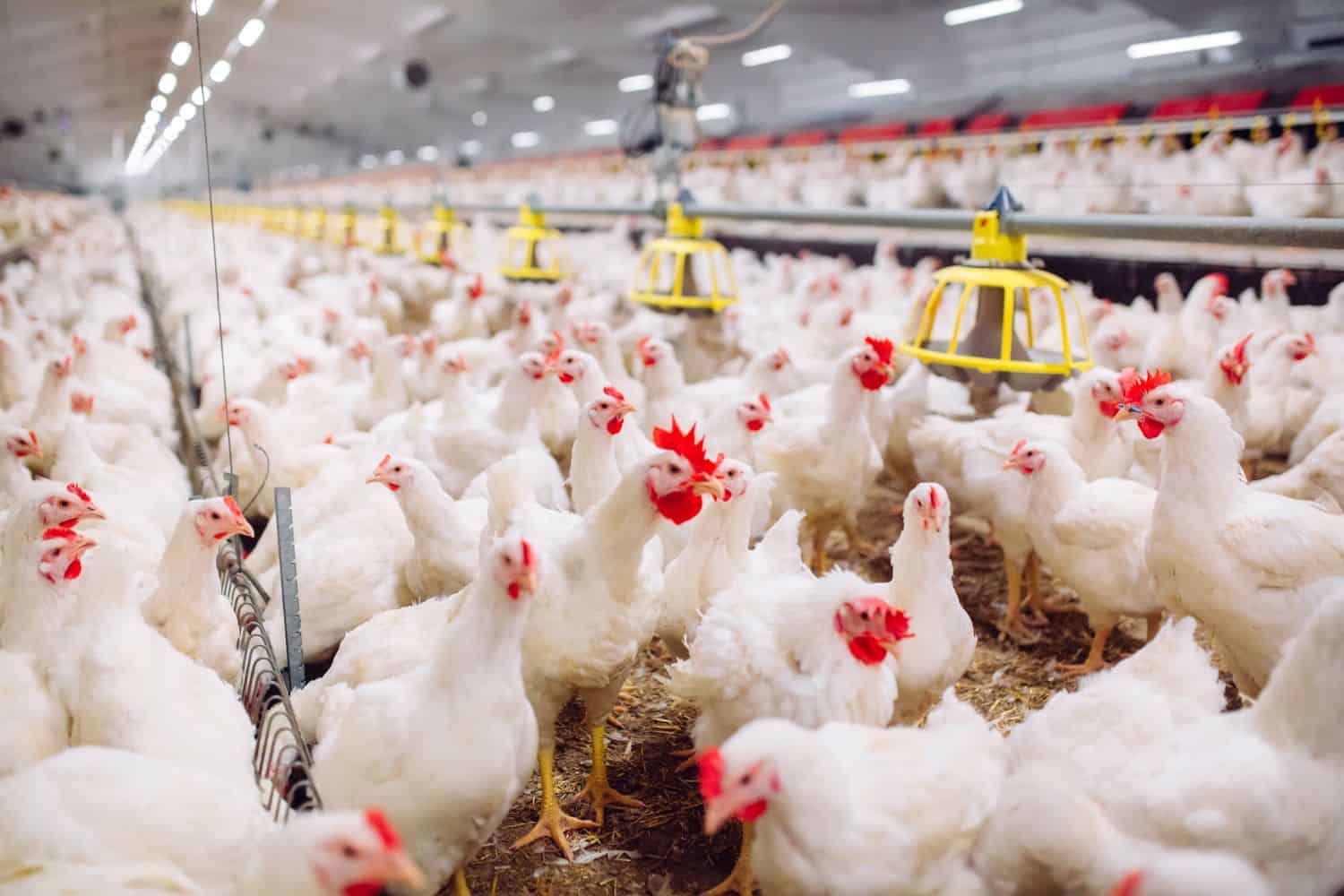
Indoors chicken farm, chicken feeding, farm for growing broiler chickens.
The South African Poultry Association (Sapa) has raised its concerns about the Competition Commission’s investigation into fairness in the poultry industry.
The commission said it will examine the entire poultry market, from production to sales, to assess whether competition is healthy or if certain practices or structures hinder companies’ ability to compete fairly.
“So, when the Competition Commission’s market inquiry questions the structure of the poultry industry, the debate should be rooted in facts, not ideology,” said Izaak Breitenbach, CEO, SA Poultry Association Broiler Organisation.
NOW READ: PIC stuffs more funds into Daybreak Foods, after chicken catastrophe
Commission’s findings
The Competition Commission is a government body that makes sure businesses compete fairly and don’t cheat or block others from entering the market. It matters because fair competition keeps prices reasonable, encourages better quality, and helps both small businesses and consumers.
The Commission highlighted that the poultry industry is dominated by a few, large and vertically integrated companies. It identified that Astral, RCL, Country Bird, and Sovereign are the four largest chicken producers, accounting for nearly 63% of the country’s chicken production.
In addition, it found that the market structure may pose significant barriers to independent entry at scale and could potentially encourage conduct that reinforces these barriers.
Breitenbach highlighted that big poultry companies help small farmers by providing chicks, feed, training, and stable markets.
Benefits that must not be ignored by the Commission
He said it is essential that the Commission does not overlook the benefits that large companies provide to small businesses.
“First, consider the benefits to this model that the inquiry can’t ignore: Integrated players subsidise poultry sector public goods, from the biosecurity training for smallholders to capital-intensive national cold-chain and processing capacity, which would simply not be feasible if these operations were fragmented across hundreds of small operators.”
Breitenbach added that during the last outbreak of highly pathogenic avian influenza, commonly known as bird flu, big companies are the ones that absorbed the upfront costs of contingency measures, such as importing hatching eggs, securing parent stock and supporting contract growers.
He highlighted that the actions of big companies kept the industry running and jobs safe, even though the government mostly provided help to importers instead.
ALSO READ: Here are the economic and social impacts of bird flu
Competition in SA
Breitenbach said big poultry companies in the country are organised the same way as most poultry companies worldwide, and due to their sizes, they help produce affordable chicken for everyone.
He said the Commission’s worry that big poultry companies “control” access is wrong. “Integrated firms largely supply critical inputs to contract growers, and it is they who carry the investment risk, maintain standards, and ensure that the distribution networks work.”
He, however, noted that the Commission still has an important role to play in making sure everything is clear and fair. “Transparency and safeguards are necessary,” he added.
“Sapa has documented how contract terms deliver steady incomes, access to finance and opportunities for growers to scale into new value-chain roles; the inquiry should use that positive evidence as the basis for its findings and recommendations.”
Larger threats to the poultry industry
Breitenbach stated that there are greater threats to the poultry industry than its current structure.
“More importantly, the inquiry should not lose sight of the larger threats that actually constrain competition: dumped imports, excessive feed costs driven by global commodity markets, chronic load-shedding, failing logistics and the cost of disease outbreaks.
“These external pressures compress margins and shrink the pool of viable independent entrants far more than integration ever has.
“The Commission should surely prioritise tackling these root causes, such as tightening trade defence, fixing infrastructure, and ensuring disease-control compensation (or more accessible vaccination), rather than penalising the institutions that keep the sector viable.”
NOW READ: Competition Commission’s report shows shocking price increases in SA over past five years



